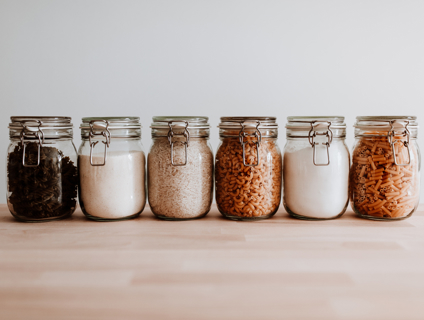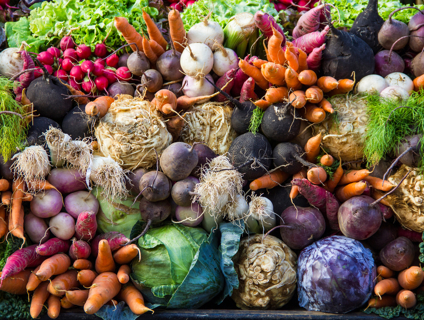
How to eat healthy on a budget
Finding a balance between being healthy, living your best social life and working can be hard. Though it is possible. Here are the top 10 steps to follow to stay healthy on a budget.
By Bio Island Nutrition Team
Finding a balance between being healthy, living your best social life and working can be hard. Though it is possible. Below are the top 10 steps to follow to stay healthy on a budget.
- Cook in bulk: This is a great way of cooking within a budget and being prepared for the future. Cooking in bulk means if you have a super busy week you can quickly grab one of the extra meals you made from the freezer. Slow cookers are also a great investment as they can be used for bulk cooking, but also because you can buy an inexpensive cut of meat and turn it into something super tender and delicious by just putting it in a pot with some vegies and spices and letting it sit all day.
- Buy what is in season: Sticking to buying what produce are in season, is an easy way of saving money. As they are readily available and usually less expensive. Buying produce such as bananas, apples, oranges, cabbage, sweet potato and carrot are more economical as they are in season in for a long period of time and have a longer shelf life. If you want something that isn’t in season try buying frozen fruit and vegetables which can still be nutritious for only slightly the cost.
- Pack your own lunch: Bringing your lunch can be one of the cheapest things you can do. From either taking leftovers from dinner last night or grabbing one of your premade meals out of the freezer will save you a lot of money and it keeps you away from the temptation of all the junk food in food courts. Packing snacks like popcorn, yoghurt, nuts seeds, and carrots are also super cheap at $1 per serve instead of super expensive muesli bars that are full of sugar any way.
- Prepare a shopping list: Preparing a shopping list before heading into the grocery stores is a great way to start your game plan for the week and means you have a budget set in place as well as reduces compulsive buys. Also don’t go shopping hungry or you may be tempted to stray from your grocery list.
- Try different sources of protein: We all know how important it is to have protein in our diet. However, meat can be super expensive, especially if you are eating it every day. Looking for protein alternatives such as, eggs, Greek yoghurt, almonds, beans and legumes are a cheaper alternative, also they bulk out the meal so you feel fuller for longer.
- Look for alternatives: Shopping and cooking can be time restraining, and due to everyone’s super busy schedules it can sometimes be easier to just pick something up on the road or grab a pre-packaged snack. However, it is now possible to go online and have companies organise all your food for you or even have the supermarket deliver to your door. They pretty much cater to every need! Have time to cook dinner? But don’t have time to go grocery shopping, certain companies will deliver fresh produce and even give you a recipe to follow. Have no time to cook or shop? There’s companies for that too, having freshly prepared meals sent straight to your door so all you have to do is reheat it. These are some easy alternatives for eating healthier on a jam-packed week and gets rid of all the planning and hassle of shopping.
- See what’s on special: Pay attention to what sales are on, as well as checking the price of bulk items; things like oil, rice and canned items will last for ages and are most cost efficient when bought in larger quantities. Just remember the shelf life of fruit and vegetables, for example celery lasts longer than leeks, meaning less food waste which is good for your wallet and the plant.
- Grow some herbs: The great thing about herbs are that they turn a simple dish into something super delicious. They are also super resilient, and only take a up a little bit of space that means you can easily grow them at home. This is also are great way of getting the kids involved in the kitchen, eating healthy and getting some sun at the same time.
- Plan: One of the worst things about cooking dinner every night is having to think about what you to cook. If you have a plan at the start of the week of what’s on the menu it is going to save the hassle of stressing about it all day, as well that means you can do one big shop at the beginning of the week. You can even make this plan a family event and everyone can sit there on a Sunday night and pick out their favourite healthy dishes for dinner.
- The freezer is your friend: Going back to point 7 looking for products on special. Especially meat, this can be portioned up and frozen for another time, which is great for meal prep. Making soups, casseroles and curries are great to make ahead in large quantities and they portioned up for meals later. This makes it cheap and time efficient.



